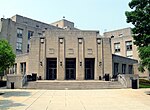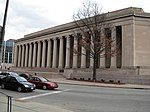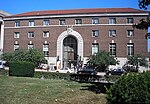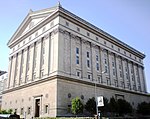Music Building (University of Pittsburgh)
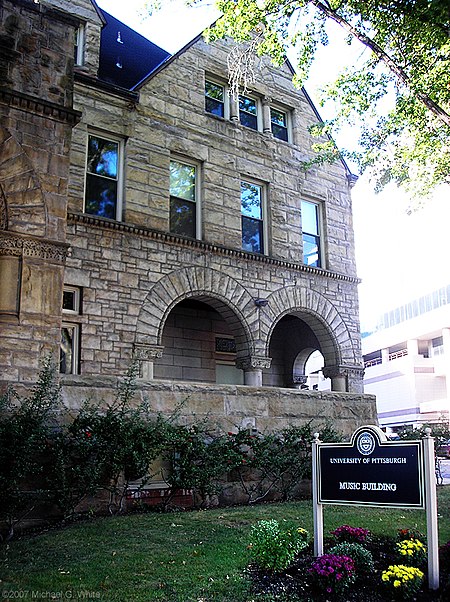
The Music Building is an academic building of the University of Pittsburgh in Pittsburgh, Pennsylvania, United States, and a contributing property to the Schenley Farms National Historic District. A Longfellow, Alden & Harlow-designed mansion that was originally the home of the pastor of a neighboring church and former university chancellor, it also served as the home to a local chapter of the Knights of Columbus, as chemical laboratories, and as the first home of educational television station WQED and that station's original production site for Mister Rogers' Neighborhood. Today it is home to the University of Pittsburgh's Department of Music and the school's Theodore M. Finney Music Library.
Excerpt from the Wikipedia article Music Building (University of Pittsburgh) (License: CC BY-SA 3.0, Authors, Images).Music Building (University of Pittsburgh)
Fifth Avenue, Pittsburgh
Geographical coordinates (GPS) Address Website External links Nearby Places Show on map
Geographical coordinates (GPS)
| Latitude | Longitude |
|---|---|
| N 40.446633333333 ° | E -79.952191666667 ° |
Address
Music Building
Fifth Avenue 4337
15260 Pittsburgh
Pennsylvania, United States
Open on Google Maps

